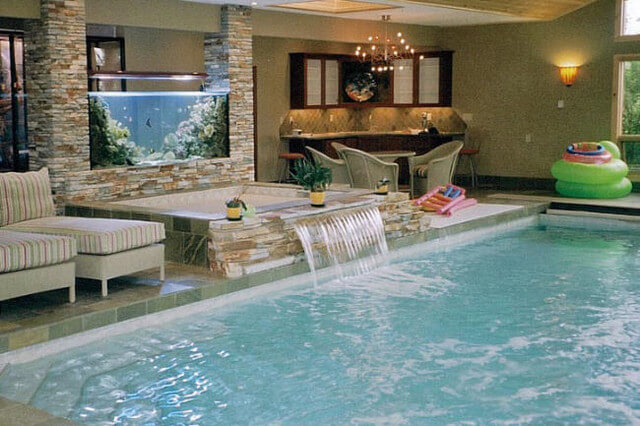What’s the Best Way to Drain Excess Water from Your Pool?
May 22, 2018by SEOteamPOOL AND SPA1
Rain happens.
Regardless as to whether you already own a pool or you’re thinking about having one put in, you’ve likely realized that heavy rainstorms can increase a pool’s water level by quite a bit.
Questions about how to drain out the excess are common during the spring and summer months—and while draining excess water isn’t a terribly difficult task, there are some safety guidelines you’ll want to keep in mind.
Safety first
- This is a task that’s best left to adults—don’t pass it off to your kids.
- Don’t wander off while you’re draining your pool. This is not the optimal time to step out to go to the market.
- Make sure the discharged water is draining into an appropriate space—aka, you want to make sure you don’t inadvertently flood your neighbor’s yard.
- Don’t operate any electrical equipment if you’re standing in water.
Steps to drain your pool
- First things first! Be sure to turn the main pool pump off, if you haven’t done that already.
- When you’re looking at the pump, look for a handle. It will look similar to the one that’s on the side of your house, when you want to turn hose water on and off. This handle tends to be located near the base of the water pump.
- When you open the valve, water will begin to drain. When the water level in your pool reduces to an appropriate height, close the valve.
Have questions? Call Wetworks Pool & Spa today
You may be surprised to learn that our company has received hundreds of calls from local pool owners who are desperately wanting to know the best way to drain excess water from their pool.
Not only can excess water lead to contamination from nearby planters, excess water can also flood your deck.
If you’re concerned about draining water from a saltwater pool, we’ll be happy to answer any questions you have about that, as well.
We should also mention that if you’re thinking about draining some of the excess liquid in your saltwater pool onto your grass, you may want to think twice. Although it’s unlikely that the salt content will damage kill your grass, the leftover salt could cause some problems.
Why? Because when salt begins to build up in the soil, it will start to absorb nutrients and water, which, over time, means your soil may no longer be able to sustain plant growth.
Pool experts in Northern Colorado
Our company has years of experience in helping local home and business owners maintain, install and repair both saltwater and chlorine pools.
We understand the importance of helping you maintain your investment, so that you and your family are able to enjoy your pool in the weeks and years to come.



One comment
Socks5 Proxies
June 19, 2018 at 11:55 pm
This is interesting content for me..
I added your web-site into my bookmarks.
Keep up good work! Looking forward for future updates!
Mike
Comments are closed.